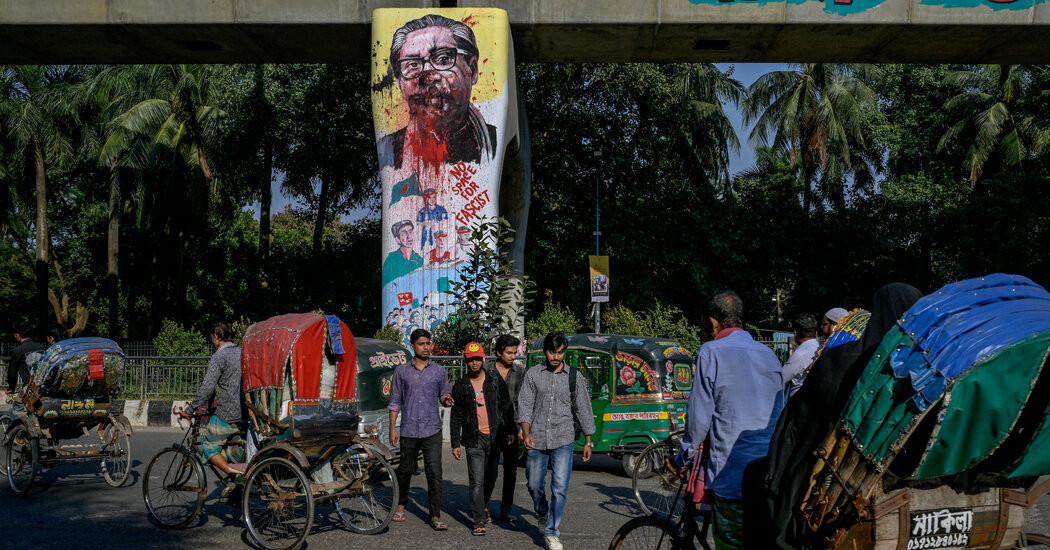

On a recent evening, in a brand-new office on the first floor of a commercial building where wires dangled from the ceiling and new flooring was still being laid, a group of university students were plotting a new future for Bangladesh.
A few months earlier, they were among the thousands who had risen up and overthrown Sheikh Hasina, whose 15-year rule had descended into authoritarianism, brutality and corruption.
Now, the students are determined to seize their opening — however long it may last or however messy the process may be — to rebuild Bangladesh as a robust democracy. They envision a system with free and fair elections, social justice and bulwarks against autocracy that no leader could chip away.
“Our political power is in a very fluid form right now,” said Arif Sohel, 26, a student organizer. He said he hoped to unite students and win over political parties with a pithy message: “We want a country that is stable and will progress.”
It is a daunting task for Bangladesh, a nation born in violence 53 years ago and turbulent ever since. The work has fallen to an unusual mix of unelected people in the interim government — highly trained experts with long, distinguished careers and students just embarking on theirs — who are operating under enormous pressures beyond the weight of history.
A major political party that had been suppressed under Ms. Hasina is demanding that fresh elections be held, perhaps within months, before any reforms are formalized. Weary citizens continue to suffer under high inflation, which has pushed up prices for essentials like oil and rice. Protests keep disrupting life in Dhaka, the capital. Tensions with neighboring India have soared amid reports of attacks by Muslims on Hindu minorities in Bangladesh. There are fears of a resurgence of militant Islam.